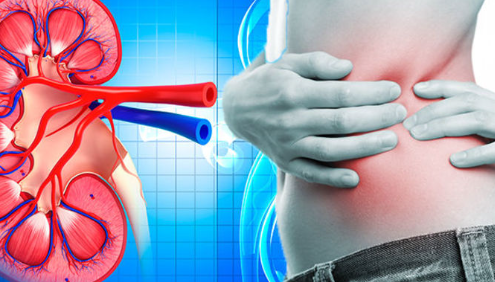
Renal cancer, also known as kidney cancer, often presents with subtle or nonspecific symptoms in its early stages. However, as the disease progresses, certain warning signs may become more evident. It’s important to be aware of these signs and symptoms and seek medical attention if you experience any of them. Early detection and treatment can improve the prognosis for renal cancer. Here are the warning signs of renal cancer:
1. Blood in the Urine (Hematuria): Hematuria is a common symptom of renal cancer. The presence of blood in the urine can vary from visible red or pink urine to microscopic blood that is only detected through laboratory tests. Hematuria is often painless but should always be evaluated by a Best Urologist in Lahore.
2. Persistent Pain in the Side or Lower Back: Unexplained and persistent pain in the side or lower back, below the ribs, is another common symptom of renal cancer. This pain may be dull and aching or sharp and throbbing. It is often felt on one side of the body and may not be relieved by over-the-counter pain medications.
3. Mass or Lump in the Abdomen: Some individuals with renal cancer may notice a palpable lump or mass in the abdomen. This mass may be large and easily felt or smaller and harder to detect.
4. Fatigue and Weakness: As renal cancer progresses, it can lead to anemia (a shortage of red blood cells), which can result in fatigue, weakness, and pale skin.
5. Weight Loss: Unexplained weight loss, often accompanied by loss of appetite, can be a sign of advanced renal cancer.
6. High Blood Pressure (Hypertension): In some cases, renal cancer can cause high blood pressure, which may be detected during routine check-ups.
7. Swelling in the Legs and Ankles (Edema): Advanced renal cancer can lead to the accumulation of fluid in the body, causing swelling in the legs and ankles.
8. Fever and Night Sweats: In rare instances, renal cancer can cause fever and night sweats, which may be confused with other conditions.
It’s important to note that these warning signs can also be associated with other medical conditions, so experiencing them does not necessarily mean you have renal cancer. However, if you or someone you know is experiencing any of these symptoms, it is essential to consult a Urologist in Karachi for a thorough evaluation and diagnosis.
Renal cancer is often diagnosed through imaging tests such as CT scans, MRIs, and ultrasounds, as well as through a biopsy to confirm the presence of cancer cells. If renal cancer is detected, treatment options may include surgery, radiation therapy, targeted therapy, immunotherapy, or a combination of these approaches, depending on the stage and extent of the cancer. Early diagnosis and treatment offer the best chance for successful outcomes in renal cancer.

Leave a Reply